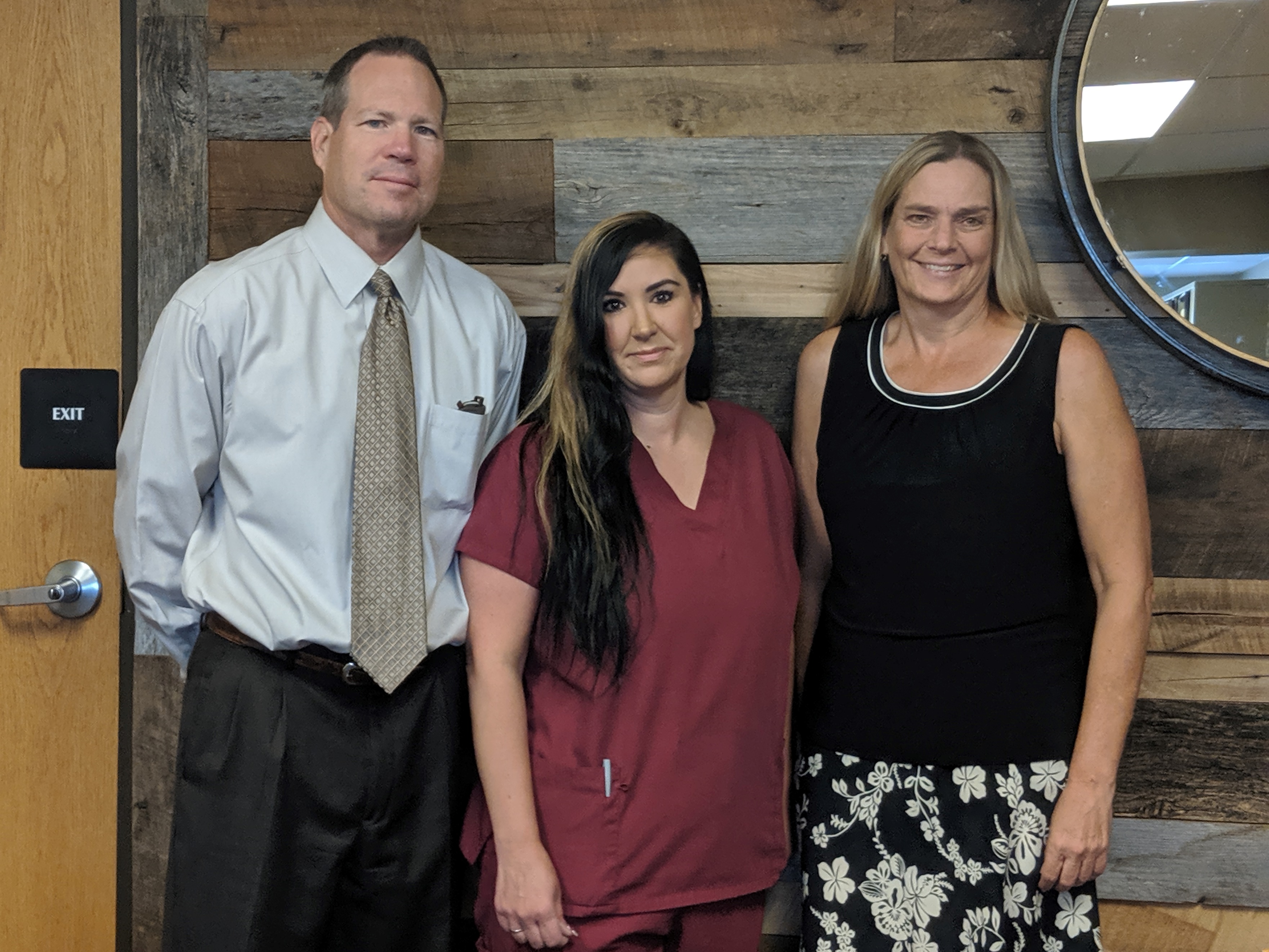Pictured, from left to right: Dr. Douglas Peller, DO, Monica (MA), Renee (Office Manager)
When the Douglas Peller Otolaryngology clinic evaluated its readiness for the Merit-based Payment System (MIPS), data measurement and reporting were two areas where improvement was sorely needed. With coaching from HealthTeamWorks experts under the Transforming Clinical Practice Improvement (TCPi) program, the Thornton, Colorado practice not only was able to report in time for 2018 MIPS reimbursement, but it scored in the 70th percentile range.
“Without coaching, I probably would never have worked so hard on the program. I probably wouldn’t have even started it,” laughs Renee Troso, the practice’s office manager. But with a high volume of Medicare patients, not participating in MIPS meant the practice would miss out on higher reimbursement. Dr. Peller’s clinic started working with HealthTeamWorks in late 2017 to improve its practices and meet MIPS requirements.
HealthTeamWorks’ Jaclyn King, practice facilitator, and clinical health IT advisor Jennifer Halfacre provided assistance for the practice, which includes Dr. Peller, a board-certified ear, nose and throat specialist, two audiologists, an MA and three front office staff members.
“They walked me through the process and what was expected of us, so I didn’t miss any deadlines,” Renee says. “They initiated the whole program and got me up and running.”
The small practice doesn’t use an electronic medical record, which made focusing on the most important reporting elements and getting at critical data the top priority. With guidance from HealthTeamWorks, Renee selected a patient registry to fit the practice’s profile.
“Jennifer helped me with the registry and helped me understand why we were doing it, what we were doing and made sure we were doing it correctly so we could max out our points wherever we could,” she says.
When it came to process improvement, asking the right questions spurred the practice to consider ordinary activities in a new light.
“They brought up questions that made me start thinking there were better ways for us to do things and helped us identify weaknesses and ways we could improve,” she says. “My ideas might have been too big to start, so they helped me scale it down and say, ‘let’s start with this.’ They got me thinking beyond functioning on a day-to-day basis to thinking about what I could do long term to make patients happier and improve our processes.”
The clinic began more intentional tracking of antibiotic use as one of its MIPS measures. “We looked at how often we see people and tracking how long it took before we put them on an antibiotic. Until you really look at the numbers, you don’t know how many antibiotic prescriptions you’re doing. By making us focus on true numbers, we were able to pay more attention,” she says.
A cost-saving project examined use of full surgical kits for procedures. “Instead of putting out a full surgical tray, they had us start calling the surgery center or having our medical assistant only pulling out what was absolutely necessary for in-office procedures. That was a big factor as far as costs go. We’re a pretty self-sufficient practice, so where we could focus on cost, the examples they brought us from other practices helped us implement good ideas.”
The practice’s success not only put it in a high reimbursement category under MIPS, but also improved its position if it chooses to participate in other payment programs. “We’re continuing to do our measures on a daily basis because we negotiate our own contracts with health plans, and this is a good negotiating tool.”
“Without TCPi, and Jaclyn and Jennifer specifically holding my hand, I cannot say that I would have been able to do this on my own. They’ve helped us focus on things that are important outside of the day-to-day practice. I found the TCPi lunch seminars and breakout sessions very helpful, too, but Jaclyn and Jennifer are phenomenal.”









